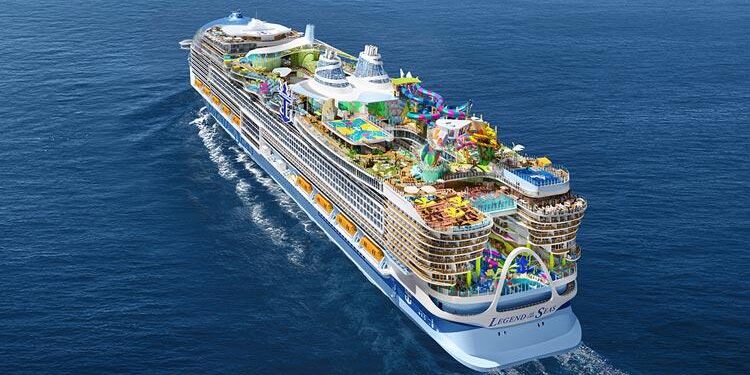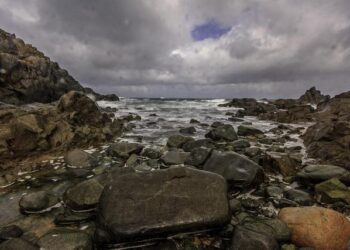The Rumour Mill: Why Are Cruise Lines Avoiding Guernsey?
In recent months, a growing number of cruise lines have been bypassing the picturesque island of Guernsey, a surprising shift that has raised questions across the maritime and tourism industries. Once a favored port of call in the English Channel, Guernsey’s decline in cruise ship visits is fueling speculation about the underlying causes-from logistical challenges to regulatory changes. This article delves into the factors driving cruise operators away from the island, exploring what this means for Guernsey’s economy and its future as a cruise destination.
Cruise Industry Faces Operational Challenges in Guernsey Waters
Recent reports from maritime insiders reveal that several cruise operators are opting to reroute their itineraries away from Guernsey, citing a combination of logistical and regulatory hurdles. Port capacity limitations during peak seasons, coupled with challenges in scheduling convenient docking slots, have significantly complicated the operational feasibility for large cruise liners. Additionally, heightened local environmental regulations aimed at protecting the island’s pristine waters have resulted in stricter emissions controls and restrictions on ship size, further discouraging major players from making Guernsey a regular stop.
Key issues impacting cruise operations include:
- Limited berth availability during high demand periods
- Enhanced environmental compliance costs
- Complex customs and passenger processing procedures
| Challenge | Impact | Response from Industry |
|---|---|---|
| Port Congestion | Delays and increased waiting times | Rerouting to alternative ports |
| Stricter Emission Limits | Higher operational costs | Use of smaller, compliant vessels |
| Customs Complexity | Longer passenger processing time | Streamlining documentation requirements |
Environmental Regulations and Their Impact on Itinerary Planning
Cruise operators are increasingly navigating the labyrinth of environmental regulations that have become more stringent in regions like Guernsey. The island’s commitment to preserving its marine ecosystems means cruise lines must adhere to strict measures including advanced waste management protocols, emissions controls, and limits on passenger disembarkation numbers. These regulations, while crucial for sustainability, present logistical challenges that some operators find difficult or costly to integrate into their itineraries. The result is a cautious approach, with several lines opting to bypass Guernsey in favor of ports with fewer operational constraints.
Key regulatory demands impacting itinerary planning include:
- Mandatory use of low-sulfur fuels within territorial waters.
- Strict waste disposal and recycling requirements enforced by local authorities.
- Restricted docking permits limiting the number and size of vessels.
- Environmental impact assessments that extend clearance times.
| Regulation | Impact on Cruise Lines | Operational Challenge |
|---|---|---|
| Fuel Emission Standards | Increased fuel costs | Refueling logistics |
| Waste Management | Compliance costs | Onboard storage limits |
| Berthing Restrictions | Reduced passenger capacity | Schedule adjustments |
Ultimately, while environmental safeguards are essential, their impact on operational budgets and scheduling flexibility causes some cruise lines to reconsider Guernsey as a viable stop. This tension between ecological responsibility and commercial feasibility is shaping the future landscape of cruise itineraries across the Channel Islands and beyond.
Strategies for Rebuilding Guernsey’s Appeal to Global Cruise Lines
To recapture its status as a favoured port of call, Guernsey must prioritize infrastructure modernization that caters specifically to the evolving needs of mega cruise ships. This includes expanding berth capacities and upgrading terminal facilities to ensure swift and seamless embarkation processes. Stakeholders are also pushing for enhanced digital integration, such as real-time analytics and visitor management systems, to provide cruise operators with actionable insights and improve passenger flow. Incentivizing cruise lines through competitive port fees and tailored marketing campaigns could further position Guernsey as a prime destination within the Channel Islands circuit.
Collaborative efforts between local authorities and tourism boards are essential to develop unique shore excursions that highlight Guernsey’s rich heritage and natural beauty, attracting cruise passengers eager for authentic experiences. Below is a summary of proposed strategic initiatives aimed at reviving Guernsey’s cruise industry competitiveness:
| Strategy | Impact | Timeline |
|---|---|---|
| Port Infrastructure Upgrade | Accommodate Larger Ships | 2 Years |
| Digital Visitor Experience | Improve Passenger Flow & Data | 1 Year |
| Incentive & Fee Reforms | Attract New Cruise Operators | Immediate |
| Curated Shore Excursions | Boost Local Economy & Engagement | Ongoing |
Insights and Conclusions
As cruise lines continue to navigate the complexities of operational costs, regulatory environments, and passenger preferences, Guernsey’s current position in the industry remains uncertain. While the island’s appeal as a picturesque destination endures, the factors steering vessels away highlight broader challenges within the cruise sector. Stakeholders and travelers alike will be watching closely to see if Guernsey can adapt its offerings and policies to reclaim its place on cruise itineraries, or if the rumour mill will continue to fuel debate about its future role in world cruising.
















